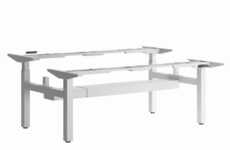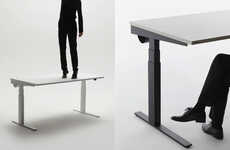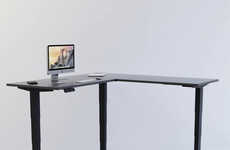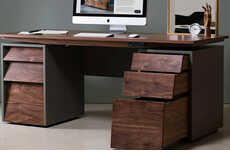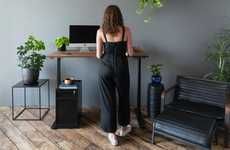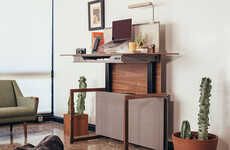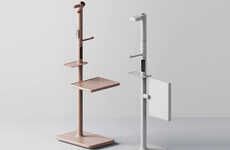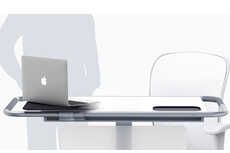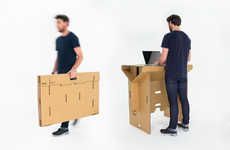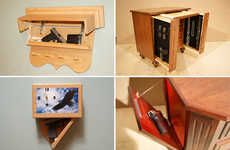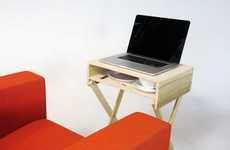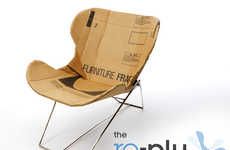
The TwoStep by Bao-Nghi Droste Permits a Pair of Different Postures
Amelia Roblin — February 3, 2012 — Art & Design
References: bao-nghi & notcot.org
Since many Westerners feel as though they spend most of their waking hours seated at a desk, the TwoStep by Bao-Nghi Droste offers an additional way to get your business done. The simple contemporary escritoire is divided into a pair of separate writing surfaces, of which one requires you to sit and the second for your to stand.
A chic powder blue steel frame defines the narrow perimeter of the work station, bolted together with two sets of supportive tubular legs. The pair of longer poles anchors one side of the chair-height tabletop and continues about 20 centimeters upwards to balance a small elevated panel. A little drawer is tucked into TwoStep by Bao-Nghi Droste, providing a place to slip excess cables. Tidiness and the separation of tasks are easily promoted by this charming piece.
A chic powder blue steel frame defines the narrow perimeter of the work station, bolted together with two sets of supportive tubular legs. The pair of longer poles anchors one side of the chair-height tabletop and continues about 20 centimeters upwards to balance a small elevated panel. A little drawer is tucked into TwoStep by Bao-Nghi Droste, providing a place to slip excess cables. Tidiness and the separation of tasks are easily promoted by this charming piece.
Trend Themes
1. Versatile Workstations - The TwoStep desk is indicative of a trend towards workstations that permit multiple postures.
2. Office Health and Wellness - The TwoStep desk highlights a growing trend towards workplace design aimed at promoting productivity and worker wellbeing.
3. Flexible Furniture Design - The TwoStep desk exemplifies a trend towards innovative furniture design that adapts to the changing needs of the modern workplace.
Industry Implications
1. Furniture Manufacturing - Furniture manufacturers may explore the integration of ergonomic design features that promote flexibility, comfort and wellbeing in the office.
2. Interior Design - Interior designers could focus on creating flexible, multi-functional workspaces that encourage people to alternate between sitting and standing postures.
3. Office Technology - Entrepreneurs in the space of office technology could investigate ways to automate the adjustment of workstations to help workers alternate between sitting and standing postures.
2.1
Score
Popularity
Activity
Freshness


